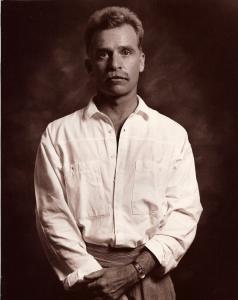I just want you to love me for who I am; I am my hair.
– Lady Gaga
This week I have been thinking about the formation of my self-concept in community. The decision to know myself, to have a rich internal life, is part of that equation. Another part of the math is knowing community, family, friends who cannot tell me who I am, but whose connection to me allows my own discoveries. As I write these two sentences, I am aware that in them are packed more concepts and beliefs than I can explicate in a month of blog posts. In my current work of bringing my encore career to light, the awareness of the small print of my life — the tightly-folded list of instructions and side-effects that we all have tucked away in the back of the drawer, rarely if ever reading it – that awareness is with me in ways it has not been since I was a teen. This time around, however, I feel less of the angst.
Social identity development models often include some sense that we take on our identities as girls, scouts, workers, parents quite frequently. We notice a particular identity more or less fits our experience and know it is ours. We take on the identity as it is in the particular context in which we live. For example, a young girl in the Chicago of 1948 would not have the same girl identity of as one in the Chicago of 1984. The same influence of context would affect our knowledge of ourselves as gay, student, father, politician, or poet.
 As a gay activitist whose self-concept was developed in the 1960s and 1970s, I am often struck by younger activists trying to explain how we are different in our views, that my view of activism is not theirs. Sometimes these explanations are instructive. I learn a great deal about their viewpoints and find some limits in my own. At other times, I am mystified by the assumptions made about my activist identity. I am thought to have assimilated into heterosexual society while nothing could be further from my truth. I am thought to have become tired, but I do not feel that way. I am thought to have only wanted marriage or gay rights (not trans* rights) or military service rights. Again, no, no, and no.
As a gay activitist whose self-concept was developed in the 1960s and 1970s, I am often struck by younger activists trying to explain how we are different in our views, that my view of activism is not theirs. Sometimes these explanations are instructive. I learn a great deal about their viewpoints and find some limits in my own. At other times, I am mystified by the assumptions made about my activist identity. I am thought to have assimilated into heterosexual society while nothing could be further from my truth. I am thought to have become tired, but I do not feel that way. I am thought to have only wanted marriage or gay rights (not trans* rights) or military service rights. Again, no, no, and no.
At the center of this experience, I believe that our self-concepts, those collections of our identities, are frozen in time until we decide quite consciously to re-evaluate them. Younger activists are right to question the currency of my activist identity; they are less accurate in their assumptions that I do not revisit the meaning of that identity to see if it still serves well.
This example of age difference is but one context-bound part of identity development. Geographic differences are also apparent. The meaning of activism changes by location. Bayard Rustin introduced the non-violent activist perspective of Ghandi’s India to King’s America.
The meaning of activist also intersects with other identities we hold, putting activist into the context of other self-identities. I know a group of nuns and ex-nuns who agressively push back against nuclear weapons. They get arrested for blocking gates, hopping fences, disobeying. They compare their actions to Jesus’ behaviors and those of the apostles. Whether their assessment is historically correct or not is irrelevant; the intersection of their religious identities and activist identities informs both.
So, too, is the intersection of my sexual identity and gender identity informing my activist identity. While younger activists seem to be addressing our differences based on age, they might as easily note the impact of my somewhat more rigid presentation as male.
Some could look at the complexity of the many contextual factors that affect our self-concepts and throw up their hands in frustration. Others would find it to be so much navel gazing, a waste of time. I find it endlessly fascinating and much more intersesting than the pat answer, “This is just who I am.” I want to know who we are becoming. I want to know how we create community in this ebb and flow of identities. I want to know how community creates us through social delimiters of our identities.
In this week of thinking about my formation of my self-concept in community, I read a book, started another, and studied a couple of short posts that called for us to revisit our understanding of ourselves. One even used the expression, “understanding our tribe.” As my friend Tom would say, “I will need to sit with this.”
You were born this way, baby.
I’m a bad kid, like the way that they made me.
– Lady Gaga
Gary Seth Godin writes about building tribes. Here is a link to a Ted talk by Seth on the subject. http://www.ted.com/talks/seth_godin_on_the_tribes_we_lead#t-4238
LikeLike
You will always be that mustache to me. 🙂 Mary Walsh
LikeLike